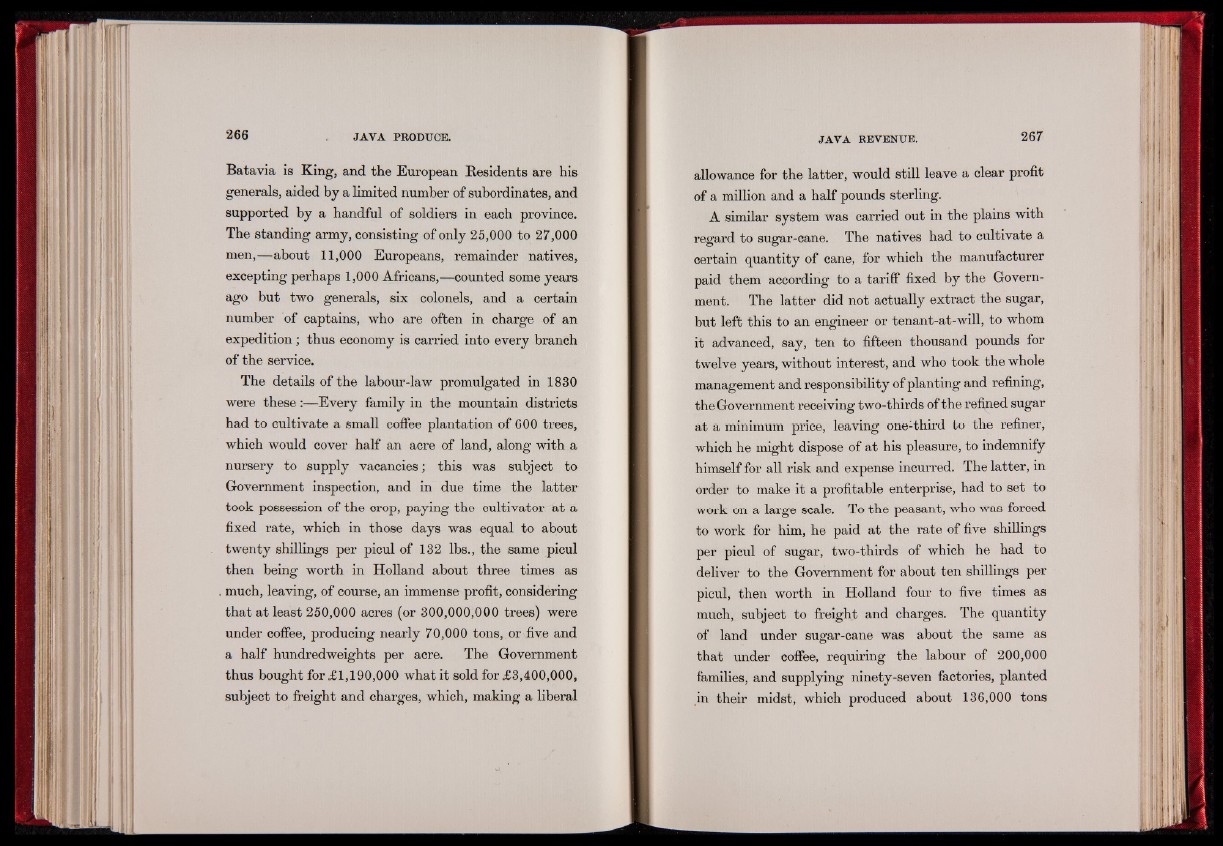
Batavia is King, and the European Residents are his
generals, aided by a limited number of subordinates, and
supported by a handful of soldiers in each province.
The standing army, consisting of only 25,000 to 27,000
men,—about 1 1 , 0 0 0 Europeans, remainder natives,
excepting perhaps 1 , 0 0 0 Africans,—counted some years
ago but two generals, six colonels, and a certain
number of captains, who are often in charge of an
expedition; thus economy is carried into every branch
of the service.
The details of the labour-law promulgated in 1830
were these:—Every family in the mountain districts
had to cultivate a small coffee plantation of 600 trees,
which would cover half an acre of land, along with a
nursery to supply vacancies; this was subject to
Government inspection, and in due time the latter
took possession of the crop, paying the cultivator at a
fixed rate, which in those days was equal to about
twenty shillings per picul of 132 lbs., the same picul
then being worth in Holland about three times as
much, leaving, of course, an immense profit, considering
that at least 250,000 acres (or 300,000,000 trees) were
under coffee, producing nearly 70,000 tons, or five and
a half hundredweights per acre. The Government
thus bought for £1,190,000 what it sold for £3,400,000,
subject to freight and charges, which, making a liberal
allowance for the latter, would still leave a clear profit
of a million and a half pounds sterling.
A similar system was carried out in the plains with
regard to sugar-cane. The natives had to cultivate a
certain quantity of cane, for which the manufacturer
paid them according to a tariff fixed by the Government.
The latter did not actually extract the sugar,
but left this to an engineer or tenant-at-will, to whom
it advanced, say, ten to fifteen thousand pounds for
twelve years, without interest, and who took the whole
management and responsibility of planting and refining,
the Government receiving two-thirds of the refined sugar
at a minimum price, leaving one-third to the refiner,
which he might dispose of at his pleasure, to indemnify
himself for all risk and expense incurred. The latter, in
order to make it a profitable enterprise, had to set to
work on a large scale. To the peasant, who was forced
to work for him, he paid at the rate of five shillings
per picul of sugar, two-thirds of which he had to
deliver to the Government for about ten shillings per
picul, then worth in Holland four to five times as
much, subject to freight and charges. The quantity
of land under sugar-cane was about the same as
that under coffee, requiring the labour of 2 0 0 , 0 0 0
families, and supplying ninety-seven factories, planted
in their midst, which produced about 136,000 tons